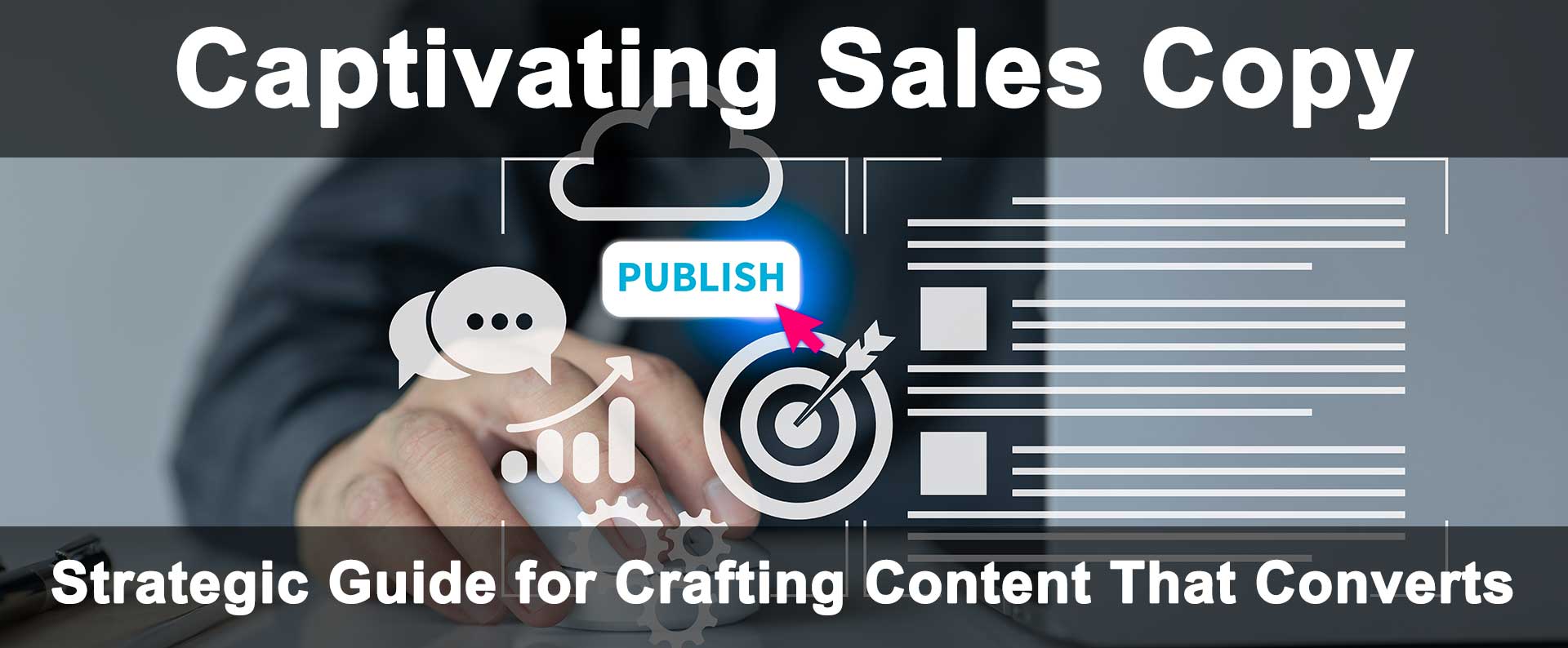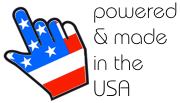Creating effective sales copy is a crucial skill for any business owner or manager, whether you're writing for your website, social media, or traditional print materials.
Many feel intimidated or confused by the task, but the principles of good writing remain the same, regardless of the medium.
Here’s a straightforward guide to help you write marketing content that resonates with your audience and boosts your SEO.
Know Your Audience
Understanding your target audience is the first step to creating content that works. Tailor your language and messaging to the people you want to reach. Here are some industry-specific tips:
- Retail:
Speak to the shopper’s desire for convenience and variety. Use phrases like "shop anytime, anywhere" and highlight your store’s unique offerings, such as exclusive brands or personalized shopping experiences.
- Restaurants: Appeal to the diner’s sense of taste and atmosphere. Describe your menu items vividly, such as "handcrafted pasta" or "locally sourced, farm-to-table ingredients." Mention any special dining experiences, like outdoor seating or live music.
- Hospitality:
Focus on comfort and luxury. Use words like "cozy," "spacious," and "relaxing." Highlight amenities and services, such as free Wi-Fi, complimentary breakfast, and spa treatments.
- Construction:
Emphasize reliability and expertise. Use terms like "licensed professionals," "quality craftsmanship," and "timely completion." Mention any certifications or awards your company has received.
- Healthcare:
Prioritize trust and expertise. Use phrases like "board-certified," "state-of-the-art technology," and "patient-centric care." Highlight your team’s qualifications and the services you offer.
- Professional Services (Legal, Accounting, etc.):
Stress expertise and personalized service. Use terms like "custom solutions," "in-depth knowledge," and "dedicated support." Mention any specialized services, such as tax planning or estate law.
Use Clear Calls to Action (CTAs)
A clear CTA is essential to guide your audience towards the next step, whether it’s making a purchase, booking a service, or contacting you. Make your CTAs stand out:
- Retail:
"Shop Now" or "Explore Our Collection"
- Restaurants:
"Reserve a Table" or "Order Online"
- Hospitality:
"Book Your Stay" or "Discover Our amenities"
- Construction:
"Get a Free Quote" or "Start Your Project"
- Healthcare:
"Schedule an Appointment" or "Learn More About Our Services"
- Professional Services:
"Contact Us for a Consultation" or "Get Your Custom Solution"
Incorporate Relevant Keywords
Keywords are the backbone of SEO. Use descriptive, industry-specific terms that your audience is likely to search for. Here are some examples:
- Retail: "online shopping," "best deals," "exclusive brands," "retail discounts"
- Restaurants: "farm-to-table," "gourmet cuisine," "dining experience," "menu specials"
- Hospitality: "luxury accommodations," "hotel amenities," "travel deals," "vacation packages"
- Construction: "building services," "home renovation," "licensed contractors," "quality construction"
- Healthcare: "medical services," "healthcare providers," "patient care," "board-certified doctors"
- Professional Services: "legal consultation," "accounting services," "business advice," "custom solutions"
Highlight the Benefits for Your Customers
Today’s consumers are savvy and want to know how your product or service will benefit them. Be specific and detailed in your descriptions:
- Retail:
"Enjoy the latest fashion trends without leaving your home" or "Find the perfect gift for every occasion."
- Restaurants:
"Experience the flavors of the region with our signature dishes" or "Enjoy a relaxing evening with our premium wine selection."
- Hospitality:
"Relax in our comfortable rooms and enjoy a range of amenities" or "Make your next business trip seamless with our conference facilities."
- Construction:
"Transform your space with our expert craftsmanship and reliable service" or "Ensure your project is completed on time and within budget."
- Healthcare:
"Receive personalized care from our board-certified professionals" or "Access the latest medical treatments and technologies."
- Professional Services:
"Get tailored advice to grow your business" or "Ensure your financial health with our expert accounting services."
Optimize for Search Engines
While writing for your audience, also keep search engines in mind. Use keywords naturally and avoid keyword stuffing. Here are some actionable steps:
- Research Keywords: Use tools like Google Keyword Planner to find relevant keywords.
- Natural Integration: Incorporate keywords into your content in a way that sounds natural and flows well.
- Supporting Phrases: Include related terms and phrases to support your main keywords.
- Meta Tags & Descriptions: Optimize your meta tags and descriptions with keywords to improve search visibility.
Final Tip: Repurpose Old Content!
- Turn a webinar into a YouTube video for healthcare clients.
- Convert customer testimonials into Instagram carousels for retail.
- Transform blog posts into email newsletters for professional services.
1. Retail: Connect with Your Customers
Actionable Steps:
- Understand Your Audience:
Identify your target demographic and speak directly to them. If your store targets eco-conscious consumers, emphasize the sustainability and ethical sourcing of your products.
- Highlight Unique Selling Points (USPs):
Showcase what sets your products apart. For instance, if you offer handmade goods, highlight the craftsmanship and quality.
- Engage with Clear CTAs:
Use direct CTAs like "Explore Our Latest Collection" or "Visit Us In-Store Today" to guide customers toward making a purchase.
2. Restaurants: Entice the Appetite
Actionable Steps:
- Descriptive Menus:
Use vivid descriptions to make dishes come alive. Instead of listing "Chicken Alfredo," say, "Savor our creamy Alfredo sauce over tender grilled chicken and fresh pasta."
- Leverage Local SEO:
Incorporate phrases like “top-rated dining in [City Name]” to attract local search traffic.
- Social Engagement:
Post mouth-watering images with CTAs such as “Reserve Your Table Now” to drive traffic to your booking page.
3. Hospitality: Create Unforgettable Experiences
Actionable Steps:
- Paint a Picture with Words:
Describe your offerings in detail. Instead of simply stating “We offer a spa,” try “Rejuvenate with a luxurious spa experience that will leave you refreshed and revitalized.”
- Showcase Guest Reviews:
Incorporate testimonials to build trust. Use phrases like, “Our guests love us for...”
- Promote Special Offers:
Use CTAs like “Book Your Stay Today for Exclusive Rates!” to encourage immediate bookings.
4. Construction: Build Trust and Authority
Actionable Steps:
- Educational Content:
Write articles that address common customer questions, such as “How to Choose the Right Contractor for Your Project.”
- Highlight Success Stories:
Use before and after photos and client testimonials to showcase your work. Include CTAs like “See Our Portfolio.”
- Easy Contact Information:
Ensure clear visibility of your contact details with CTAs like “Contact Us for a Free Estimate.”
5. Healthcare: Communicate with Care
Actionable Steps:
- Simplify Medical Jargon:
While jargon can be important for keyword usage, be sure to also use layman's terms to ensure clarity. In addition to “cardiac arrhythmia,” also use “irregular heartbeat.”
- Informative Guides:
Create content that addresses patient concerns, like “What to Expect During Your First Visit.” This helps build confidence and trust.
- Prompt Appointments:
Use CTAs like “Schedule Your Appointment Today” for ease of access.
6. Professional Services: Establish Your Expertise
Actionable Steps:
- Showcase Expertise:
Highlight your qualifications and experience. Use statements like “Over 20 years of experience in delivering expert legal advice.”
- Address Client Pain Points:
Discuss common issues clients face and how your services solve them, such as “Simplify Your Tax Season with Our Expert Guidance.”
- Direct CTAs:
Encourage action with phrases like “Contact Us for a Complimentary Consultation.”
In Summary: Write with Intention
No matter your industry, effective sales copy is crucial for engaging your audience and driving conversions. Focus on clarity, use direct CTAs, and incorporate relevant keywords to boost your SEO.
Whether you’re a retail store, restaurant, hotel, construction company, healthcare provider, or professional service, the principles remain the same.
By following these industry-specific steps, you can create compelling content that not only attracts visitors but converts them into loyal customers.













